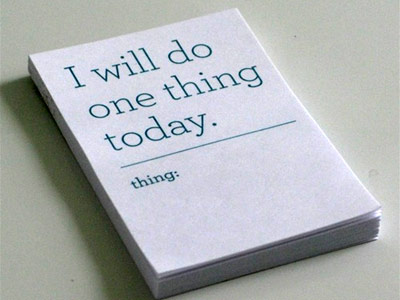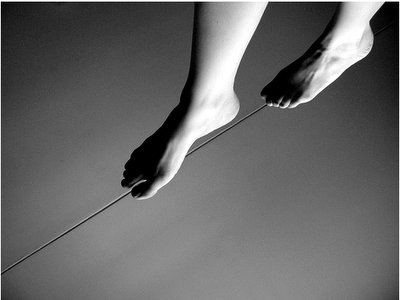14 Mar Stress Is The Precursor of Every Disease: Notes on Redefining Balance and Self-Care
I’m a strong believer in reciprocity: we learn our own best lessons through the teaching that we offer to others.
Claire* was one of my favorite patients in my former practice. A university professional with a deep love for the arts and literature, Claire loved spending long weekends in my hometown of New York, immersed in theater or wandering through used bookstores and old record shops. Her two children were grown up and on their own which meant no more rushing home to help with homework or usher anyone to a sports practice. Her work as an executive accountant had been fulfilling and if she could keep pace with the demands of the schedule, she told herself, in just 9 more years she’d have a generous retirement package to cash in on. Claire’s plans included downsizing her suburban home to a condo and, if there was enough money, a small rental on Maryland’s beautiful eastern shore; a new car (finally!) that was more efficient, and hopefully more time to escape to New York or Washington to enjoy the theater. On the surface everything looked good. Her finances were in pristine condition, something she was very proud of given that she’d practically raised her two children on her own.
 But behind closed doors Claire admitted to feeling a mess. She was starting to gain weight and no matter what diet plan she tried she couldn’t shed more than a few “water weight” pounds. She had constant headaches. Her hair was thinning. Her blood pressure was high and her blood work showed that she was very close to becoming a diabetic. As if that were not enough, the real challenge began with a simple cough that she couldn’t get rid of, morphed into a bronchitis that then turned into a full blown pneumonia which landed her in the hospital for nearly two weeks—all of which left Claire extremely fatigued, run down, further behind in her work and in my office for help. Claire’s illness not only cost her money but now it was costing her time.
But behind closed doors Claire admitted to feeling a mess. She was starting to gain weight and no matter what diet plan she tried she couldn’t shed more than a few “water weight” pounds. She had constant headaches. Her hair was thinning. Her blood pressure was high and her blood work showed that she was very close to becoming a diabetic. As if that were not enough, the real challenge began with a simple cough that she couldn’t get rid of, morphed into a bronchitis that then turned into a full blown pneumonia which landed her in the hospital for nearly two weeks—all of which left Claire extremely fatigued, run down, further behind in her work and in my office for help. Claire’s illness not only cost her money but now it was costing her time.
In a longer than usual appointment one afternoon, Claire cried through the entire backstory. She had been holding down the work of two people for over a year due to the university’s budget cuts; work that didn’t end at 7pm when she finally left the office. She admitted to taking work home and working on the weekends to catch up on all that she couldn’t get done during the week. Every day was laced with distractions and meetings she was expected to attend. The university had implemented a new, ‘more efficient’ software system which still wasn’t working properly. In fact, it slowed processes down and made it difficult for her to delegate to her assistant. Rather than taking the time to explain things to her assistant (time she felt she couldn’t afford) she opted to just do most things herself including answering emails that always seemed to be ‘urgent.’ An admitted perfectionist, she valued accuracy in her work and never felt good until she’d done her due diligence of double checking. Taking work home allowed her to ‘fine tune’ all that she felt it impossible to delegate, making sure her I’s where dotted and T’s were crossed. To top it all off, Claire was the lead on a very successful community arts council that had been invaluable in both her children’s lives. Awards lined the shelves in her den for the work she’d done in getting this stalled program off the ground and financially successful. Her work schedule meant she was missing many of the planning meetings and couldn’t lend any meaningful input into what the priorities should be for the next grant cycle. An entire theater season had passed by the time we’d talked and Claire had missed all but one of the productions, which only left her wracked with more guilt.
Claire tried to be proactive. Many times she’d asked for help and many times the answer was the same. The vacancy in her department was reviewed by H.R. and determined ‘non-essential,’ which meant the position would likely be eliminated altogether. Because she was doing such a fine job “keeping the ship afloat,” her boss had said, he was able to secure a small raise and additional ‘comp time’ for her in the new fiscal year. Knowing this only made Claire feel obligated to do more and do better. It pushed all the things she enjoyed most—the arts, her community work, and time for exercise to address her weight—further out of reach. Every road out of her conundrum felt like it would only lead her right back in. Night after night she could hardly sleep. The anxiety of needing to change and do something about her health had overcome her ability to think clearly. She wanted help getting her medical conditions under control, but even more than that, Claire wanted help finding balance.
Self-Care and Mental Health Matters
Claire’s life epitomizes what has become increasingly prevalent: work-life imbalance and the urgency of self-care. It illustrates the hazards in giving ourselves over to our work in ways that are unhealthy and unsustainable over time; the shift in priorities from what matters most (health, well-being, relationships) to what will matter least (money, awards) in the end. It illustrates the futile and vicious cycle of trying to be everything for everyone; doing too much with too little for too many. Most importantly, it offers a clear window into the manifestation of preventable, life altering disease and stress as the precursor that it is.
Awards and rewards such as money and ‘comp’ time (which ironically, rarely gets used) only make our work-life imbalance worse. Like Claire, we begin to tie our self-worth to our net worth and strive to prove that we are worth the rewards we are given. In societies like ours that value product over process and quantity over quality, work often forces our health into a distant back seat, completely obliterating needed time for exercise, rest, outings with friends, and the very joy-filled non-compensated activities that strengthen us to do the work we do in the first place.
Health coaching with Claire meant helping her become her own self-advocate, a process rooted in what I believe is the foundation of self-care. It meant holding space for Claire to discover, first and foremost, what her work meant to her and to craft a vision of what a balanced life might look like.
Something to Think About
Balance in life does not mean that all things remain equal, all of the time. Life, in and of itself, is inherently imbalanced. The world we live in is full of unexpected occurrences that throw us off our course and create the tension we identify as stress. Each stage in life is filled with challenges that demand our attention and test our will and strength. Our childhood and teenage years are naturally rooted in physical growth and development that are not always in line with the development of our peers. Our young adult years are centered in self-discovery and independence, finding careers and establishing compensated work that is not always in line with the dreams we imagine for ourselves. Our adult years are defined by the roots we establish through relationships, marriages, purchasing homes, raising children, making investments—all of which requires a constant shift in focus and negotiation of time. Each stage brings its own unique set of tensions. Balance becomes a shifting dynamic, something we achieve not by trying to eliminate stress but by strengthening our ability to cope with it.
Balance is the difference between working 5 days a week with no time off for pleasure versus choosing a 4 day work week and lower pay with enough time off for medical appointments and all of the things that bring you health and joy. Balance is the difference between spreading yourself thin on five different committees and running late to (or missing) every meeting versus choosing one very important issue and committing to being physically and mentally present to the mission at hand. Balance is the difference between working overtime to have everything we want versus prioritizing the things we need. Balance is the difference between running life as a sprint, trying to achieve everything in one life stage, versus accepting life as the marathon that it is and allowing life to unfold over time. To walk the tightrope we know as life, balance is about reconnecting with the natural ebb and flow of living; lightening our load and letting go of what no longer serves us; setting healthy boundaries and realistic expectations for ourselves and others; prioritizing quality over quantity, and learning above all else how to prioritize our well-being — all of which adds up to good self-care.
The Way Forward
Motivation moves mountains and Claire had a deep desire to move the mountain before her. Working together in regular appointments, we were able to uncover memories of her parents who worked all the time, rarely taking breaks for vacation and grandparents who criticized anyone who sat around “doing nothing” all day. She was able to identify her own personal fears related to money: fear of not having enough to care for the children after her divorce and worse, fear of not having enough for the kind of retirement she dreamed of. Claire’s answer to her fears was always to work more so that she could earn more and at no point in her life had she ever heard of the concept of “having more by doing less.” Claire’s discovery of self-advocacy helped her identify long held feelings of low self-worth which were tied to her perfectionism. It wasn’t that she valued accuracy, as she had said, it was that she feared making mistakes that would make her appear incapable and unworthy.
With time she was able to see that she was more valuable to the institution and to her department than she’d given herself credit for. Cashing in on that value meant setting personal and professional limits to the hours that she was willing to work, resisting the urge to take work home on weekends and relinquishing her role as a lead on the community arts council so that she could simply enjoy all that the council offered as a guest. Establishing good self-care habits meant helping Claire gain confidence in requesting a more reasonable four day work schedule so that she could keep her medical appointments and start working on her health goals. She wouldn’t be able to save as much but Claire understood that life is full of tradeoffs and her health was no longer something she was willing to trade off. What Claire also learned was the importance of ‘symptoms as signs,’ the hidden messages that show up long before the results of lab tests and high numbers do. As with any good health coaching relationship, Claire’s lesson in setting limits and boundaries became one I took as my own.
The way forward to good health is through acceptance of the tightrope walk that life is. Balance is achieved through the practice and  commitment of being good to ourselves and setting the singular priority of health as the first wealth. Under that umbrella, we can learn to set realistic, well-rounded goals and work on their achievement over time, knowing that Rome wasn’t built in a day. We can give ourselves permission to turn our work OFF at the end of the day and resist the urge to be perfect. We can re-prioritize process over product. We can attune ourselves to a more fuller version of health that takes into account our physical, mental, and spiritual needs. Best of all, we can learn how to cultivate more life affirming identities of ourselves centered around the full person that we are rather than the more narrowed definition of the work that we do.
commitment of being good to ourselves and setting the singular priority of health as the first wealth. Under that umbrella, we can learn to set realistic, well-rounded goals and work on their achievement over time, knowing that Rome wasn’t built in a day. We can give ourselves permission to turn our work OFF at the end of the day and resist the urge to be perfect. We can re-prioritize process over product. We can attune ourselves to a more fuller version of health that takes into account our physical, mental, and spiritual needs. Best of all, we can learn how to cultivate more life affirming identities of ourselves centered around the full person that we are rather than the more narrowed definition of the work that we do.
Just for Practice
Make a One Thing ‘list’ for yourself for the next seven days. Each day, write down one good thing you will do for yourself and, no matter how busy your schedule is, commit to doing it. Try to think of a thing that simply brings you joy and has nothing to do with your compensated work. At the end of the week see how many days you achieved your goal and make note of how great that achievement makes you feel.
Drop me a line and let me know how it goes. I’d love to hear your story.
Yours in good health,
–Angel


Denis McFadden
Posted at 21:10h, 02 JanuaryClaire could be me.
I have struggled for the last few years.
Just found your link on twitter.It is great.
I feel despair and low self worth.
Stress has brought on illnesses and sadness.